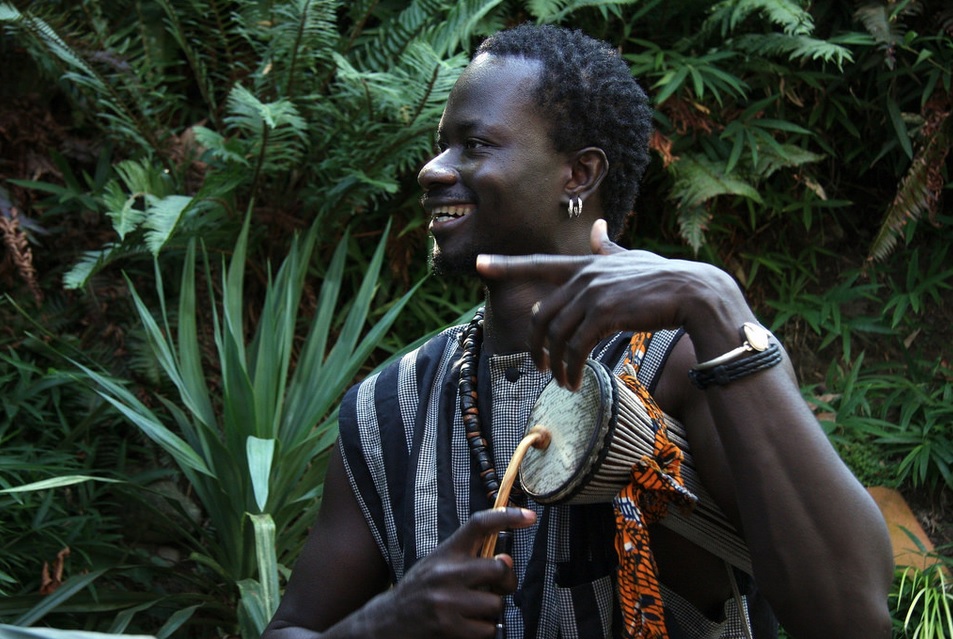Form Follows Funkadelic: Notes on Pop, 1492-2050
by Duncan “Schoolly” Dooald
Viking, 748 pp; $23.95
The decline of pop music criticism has co-extended with that of journalism, as definitively chronicled in Wes Gesty’s No CDs to Sell, No Record Stores to Sell Them To. (Much-quoted judgment: “I tried to sell Newbury Comics my old .wav files but they just laughed at me. Game over, man.”)
Increasingly, scholars of pop incubate in universities and eschew commercial venues in favor of the academic presses, where their work is read and appreciated, or at least subsidized. One of these anchorites, however, has been promoted into the neo-mainstream by leading content curators and social aggregators who have enthusiastically linked to his Google Docs, Storified his tweets, Yik-Yaked his Instagrams, and disseminated his ham radio broadcasts like samizdat from the pop-cultural gulags. Duncan “Schoolly” Dooald has generated an excitement not seen since the heady days when raves didn’t even have promoters and Camille Paglia , high on Romilar in an attempt to channel Lester Bangs, dubbed Pat Boone “the white Elvis.”
Dooald’s fame owes largely to his code-switchy style, in which cluster-bombs of academic jargon and an impressive array of Derrida and world music references blend seamlessly with jump-rope rhymes and jokes from old Bazooka Joe comics . Though born in Scottish farm country to Presbyterian ministers, Dooald is fluent, indeed precocious, not only in African-American argot but also Yoruba, Nollywood, S’ega, Tsapiky, and Mbalax, and he is as well a dab hand at K-pop.
Dooald first attracted attention as a professor at tiny Gwynedd Mercy University in Pennsylvania, where he quickly became Chair of the Media Lab, which he renamed Thhinkspace. Attracted by Dooald’s beguiling/defiant slogan, “What does the extra ‘h’ mean?” major international thinkers flocked to take part in a series of “Doodaldiscussions” that Jacobin magazine dubbed “TED talks for people who don’t wash their hair.”
Though technically still head of Thhinkspace, Dooald now spends most of his days and grant money in intellectual hotspots such as Porto, Bilbao, and St. John, New Brunswick, giving impromptu Doodaldiscussions at bars and private homes, often unannounced and frequently uninvited. A Vine of one such event, in which Donald whispered the name of Beyonce and grew visibly erect in his muslin pantaloons, was the most-viewed Vine in the “fine arts” category for most of 2015, until it was supplanted by footage of Cornell West falling down a wet staircase.
Form Follows Funkadelic: Notes on Pop, 1492-2050 is his first book. Some meta-critics have preemptively denounced the book’s galleys as a sell-out, not only because it appears on a major imprint, but also and mainly because just last April Dooald had thundered against “the rehypercommodification of an already hypercommodified popscape” by other pop critics with followings, and pledged “never to see my popservations reified as a paper-and-pasteboard sepulcher.” (from his tweetstorm “Folk and Catafalque”). Significantly, no one knows what this means.
Now he answers his critics, whom he has dubbed “the prison guards of the pan-popticon,” in an introduction that takes up half the book’s 748 pages. In it, Dooald argues that pop “has always been hypercommodified, indeed was hypercommodified before the prefix ‘hyper’ was a thing, which is why no one noticed,” and that his work “seeks to recontextualize its own context by adopting the Master’s strategies and turning them against him.” (When, while being interviewed by Charlie Rose, Dooald was asked, “Who is ‘the Master?’” he remained motionless, stoic and opaque in his trademark sunglasses and caftan as Rose proceeded to answer his own question with a barrage of wild guesses–“ Capitalism? Jay-Z? Clive Davis? Beethoven? Cole Porter?”– until Dooald began softly to snore.)
“I subvert where I seem to revert.” Dooald writes. “I am wicked so and been recoding while y’all been decoding, koss chatal [emoji of stink lines around a vagina], I show you how to cook meat and cheese.”
Eventually we get to the criticism, and this reviewer must note that while Dooald’s insights are bracingly unexpected, they are in the main unsupported by anything but assertion, repetition and insulting asides. Was Sengalese hand-and-stick drumming, for example, really the “decolonizing” element in Afropop? We cannot tell; Dooald merely cites (undocumented, probably fictitious) field recordings and writes “LISTEN” between each citation. Does neo-crunk artist Bug*man’s famous couplet, “Bitch was thick like a Kardashian/Grab her booty and I bash it in” really demonstrate an “epirrhematic syzygy” just because Bug*man goes “la la la” at the ends of his lines? Wasn’t that, as we read in Bug*man’s body man’s tell-all, just a nervous habit? Or is Dooald being overgenerous? Or (we must consider the possibility) is he just picking big words out of a dictionary? There is no way to tell.
Also, what is G’sggdbcb? This reviewer has never heard of the alleged Burkinabe genre, and can’t pronounce it, even in his mind; neither has, nor can, anyone else he has spoken with; the records and performers Dooald claims for it and praises effusively (“LISTEN” “RECOGNIZE”) have been shown not to exist; and when questioned on this by Melvyn Bragg on Radio 4, Dooald simply shouted “ras clot bumbaclot” repeatedly until he was ejected from the studio.
It may be that we all will just have to catch up with Dooald, but by the time we do he will have been supplanted in critical favor–word already reaches us of a 12-year-old critic in Arkansas, known only as Sx, who communicates exclusively in Snapchat.
